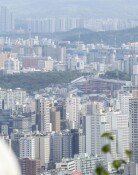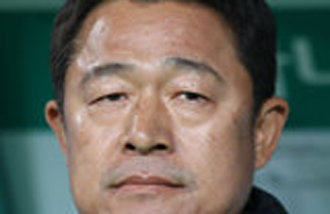China Mediating Between U.S., North
As the U.S. and Japan are firm in their stance for strong sanctions against North Korea after North Korea conducted its nuclear test, China, which has been on the other side with Russia, now is trying to mediate between two camps, advocating for a reasonable level of sanctions and dispatching high-level special envoys to the U.S. and Russia.
The U.S. administration on October 11 local time announced that it will seek close cooperation with other countries participating in the six-party talks except North Korea to address the current problem of the Norths nuke test.
R. Nicholas Burns, Under Secretary for Political Affairs of the State Department, on the same day said in a speech at the Council on Foreign Relations, Conflicts between South Korea and Japan and China and Japan, an obstacle so far to solving the problem of North Korea, are now assuaged after the Norths nuclear test, giving the U.S. a chance to strengthen its strategic stance in Asia.
He also made clear a principle of sanctions first, multilateral negotiation later, saying, Although President Bush is continuing to emphasize a diplomatic resolution of the North Koreas nuclear problem through the six-party talks, things have changed because of North Koreas nuke test and now its time for the UN Security Council to consider putting sanctions against North Korea.
For its part, the Japanese government on October 12 began reviewing laws regarding contingencies so as to find out whether Tokyo can back up its naval inspection on North Korean vessels with its navy under the UN resolution.
For Japans Self Defense Forces to be allowed to assist the U.S. forces in the rear with transportation, supplying fuel and water, search and rescue, a conflict or emergency should be recognized as an regional emergency that will have critical implications on peace and safety of Japan under contingency law.
Earlier, Japans Prime Minister Shinzo Abe said on October 11 at the House of Councilors Budget Committee, If North Korea develops nuclear weapons, it will face a serious situation for its regime survival.
Song Il Ho, North Koreas envoy for relations normalization between North Korea and Japan, told Kyodo news agency in Pyongyang on October 12 that if Tokyo imposes additional sanctions against it, North Korea will come up with necessary countermeasure without fail.
He also said that North Korea is keeping a close watch on words and action of Abe.
Meanwhile, Chinas foreign minister Tang Jiaxuan visited Washington as a special envoy for President Hu Jintao to discuss measures responding to the Norths nuke test with the U.S. senior officials. Later he is going to visit Russia.
It is expected that Tang will try to bridging the difference with the U.S. as Beijing announced it is for putting sanctions against North Korea but the level must not be too harsh.
Yet, a forecast from the U.S. is noteworthy that a serious crack in the North Korea-China alliance will force China to invoke sanctions on its traditional ally.
Kurt Campbell, senior vice president of Center for Strategic and International Studies, made a forecast in a seminar in Washington, saying, Within a matter of days or weeks, we might see oil pipelines and ships from China to North Korea mysteriously not working and food delivery disrupted.
Headline News
- Iran blames US sanctions for helicopter crash that killed president
- Pres. Yoon vetoes investigation into death of marine
- “Croatia Holds a Business Forum in Seoul…Looking forward to the development of trade relations”
- Samsung names new chief for semiconductor business
- Seoul City plans to expand welfare benefits







